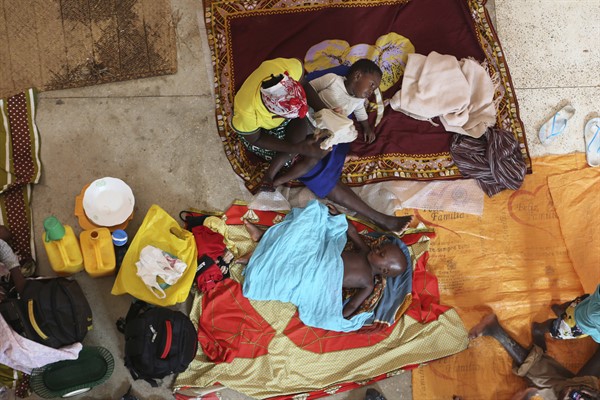Last year was a turning point for the shadowy, Islamic State-linked jihadist group that is operating in the Cabo Delgado province of northern Mozambique. First, the operational tempo of Ahlu-Sunnah Wa-Jama, or ASWJ—locally known as al-Shabab, though it has no known connection with the Somalia-based extremist group—took off dramatically. According to data from the Armed Conflict Location & Event Data Project, or ACLED, the group launched 437 attacks in 2020, compared to 256 between 2017 and 2019. Second, ASWJ managed to assert control over major transportation routes. Its presence has impeded safe travel on the primary north-south road connecting the towns of Pemba and Palma, on Mozambique’s natural gas-rich northeastern coast, and by year-end, the militants had disrupted travel on the alternate route connecting the two towns.
ASWJ also moved from conducting attacks against isolated villages and villagers, to ransacking district capitals, eventually taking Mocimboa da Praia, a port town that had served to resupply both the military and local communities, last August. The group’s presence in Mocimboa da Praia gave it better access to the sea, resulting in an uptick in attacks against nearby island communities and introducing a maritime dimension to the conflict.
Finally, the group closed out 2020 with well-publicized attacks against new, bolder targets. Around 300 militants carried out a raid just across the border, in southern Tanzania, in October. The following month, the group made an attempt to take Mueda—where the headquarters of the government’s military operations in the region are located, and which is also the birthplace of the ruling FRELIMO party. In December, it attacked the outskirts of the liquified natural gas facilities near Palma, forcing the temporary evacuation of some employees.

